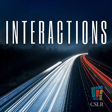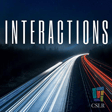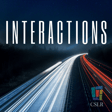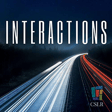Become a Creator today!Start creating today - Share your story with the world!
Start for free
00:00:00
00:00:01

Thomas Jared Farmer - An Intellectual Biography of Gianni Vattimo
In this season of Interactions, Whitney Barth and John Bernau engage with contemporary voices in the field to discuss recent works in law and religion. Today’s guest is Dr. Thomas Jared Farmer, the McDonald Scholar in residence at the Center for the Study of Law and Religion at Emory University. In this episode, Dr. Farmer talks about his motivation to write a biography about Gianni Vattimo, and the importance of Vattimo's contributions to modern western philosophical thought. This podcast is produced by the Center for the Study of Law and Religion at Emory University in collaboration with Canopy Forum.
Thomas Jared Farmer Faculty Page
Center for the Study of Law and Religion | Emory University School of Law | Atlanta, GA
Transcript
Introduction to Interactions Podcast
00:00:12
Speaker
Hello and welcome to the Interactions Podcast. For those that are new here, Interactions is a podcast produced by the Center for the Study of Law and Religion at Emory University. Here we talk about all things law and religion and how they interact in the world around us. My name is Chelsea.
00:00:27
Speaker
And I'm Sierra. We are students on the digital scholarship team here at the Center.
New Season Theme and Guest Introduction
00:00:32
Speaker
You are currently listening to the first episode of our newest interaction season on recent works in law and religion. To kick things off, we brought in Dr. Jared Farmer to talk about his work on the Italian philosopher Gianni Vattimo.
00:00:46
Speaker
Thomas Jared Farmer is the McDonald's Scholar in Residence at the Center. He holds many degrees, including a Master's in Theology from Emory University's Candler School of Theology, an MA in Philosophy and Religion from Claremont Graduate University, and a PhD in the Philosophy of Religion from the University of Munster.
00:01:04
Speaker
In 2023, Dr. Farmer wrote his dissertation on the philosopher Gianni Vadamo and is currently finishing a book on his life and work.
Exploring Hermeneutical Philosophy and Vattimo's Influence
00:01:13
Speaker
In part, this book examines the expansion of hermeneutical philosophy in Western thought over the course of the last century and discusses the contributions of Vadamo to recent shifts in philosophical and religious thought.
00:01:28
Speaker
In this episode, Whitney, Barth, and John Murnau joined Jared to talk about the motivation to write this biography, the impact of Vautamo's childhood in Italy, his ideas about truth, ideological violence, and his unlikely relationship with Pope Francis. Thank you for joining us on this episode of the Interactions Podcast. And keep an eye out for our future episodes where we talk with other law and religion scholars, including Alexa Windsor and Arielle Lieberman.
Meet the Hosts and Their Roles
00:01:58
Speaker
I'm Whitney Barth, and I am the executive director of the Center for the Study of Law and Religion at Emory and Charlotte McDaniel Scholar. Our center explores the intersections of law and religion through research and scholarship, teaching and training, and public programs. And I'm joined this afternoon by my colleague, John Bernal.
00:02:13
Speaker
Hello, my name is John Bernah. I'm a sociologist working at the Center for the Study of Law and Religion at Emory University and the Director of Digital Scholarship. Today we're speaking with Dr. Jared Farmer, McDonald Scholar in Residence at the Center. Jared, welcome to the podcast.
Dr. Farmer's Work and Interests
00:02:29
Speaker
Thanks for having me. Well, I've given you a full introduction um at the top of the episode, but to start, can you tell us a bit about your professional life and how you think about your work?
00:02:38
Speaker
Sure. So my work at the center is not disconnected from my own scholarship, but it is distinct. So most of what I do at the center is work with Dr. John Wettie on his own research, particularly in the area of the history of Calvinism. For my own work, I have a background in philosophy and the academic study of religion. And so my interests center on philosophical hermeneutics, contemporary problems in the intersections of religion, law, politics, philosophy. So I spend a lot of time looking at problems in contemporary politics, the kind of religious valence that they may take around things like Christian nationalism and whatnot. And a lot of my research focuses on debates in contemporary philosophy and religious life.
00:03:27
Speaker
Yeah, that's great. Jared, we're here today and we want to talk to you about your new book. So tell us tell us a little bit about the book and and about its subject and and how you first encountered him. Yeah, so the book is about a contemporary Italian philosopher, an individual named Gianni Vattimo. Vattimo actually passed away at the end of last year. So this will be one of the, if not, to my knowledge, just the first book that's come out since his passing, which will address his work.
00:03:53
Speaker
It's slated to be an intellectual biography. I didn't set out to write it as a but ah biography necessarily, but the the way that I approach problems is contextually.
Understanding Hermeneutics
00:04:04
Speaker
So for anyone who's unfamiliar with what hermeneutics entails, so hermeneutics is the study or the science of interpretation.
00:04:13
Speaker
And so it's a way of looking at not just subject matters, but how we understand subject matters, how we think through problems, the kind of intellectual tools that we utilize in order to solve problems, and the narratives that we tell about subjects.
00:04:28
Speaker
And so, I'm interested not just in specific questions about philosophy, but what are the ways in which we solve those problems? Why do we find certain narratives appealing? How they spread over time? Those those sorts of things. so So, it's a natural way for me to try to understand a thinker by looking at their life and why they they might find certain problems engaging.
00:04:53
Speaker
and why they might find certain areas of philosophy useful in approaching those problems. And so the kind of intellectual biography is useful, I think, because it does a lot of those things. It contextualizes the problem to say, here's what was going on in society in this person's life, which made these problems in particular pressing for them.
00:05:16
Speaker
And these are some possible avenues as to why they think that this is the best way to approach and solve those problems. That's great and really helpful in background in terms of why that particular format. So given that focus, Wyve Audimo and what about his work inspired you to write this book?
00:05:34
Speaker
So I first encountered Vitamoe probably in 2009, so there was a book that came out, it was written by, I don't know if you're familiar with Karen Armstrong, a scholar of religion. She tends to write books for a popular audience, and there was a book that had been recommended to me. It was The Case for God. So she's written other works like On the Axial Age, The History of God, and whatnot, Problems of Religious Violence. I don't remember the names of some of these works, but those are the topics. And this particular work,
00:06:01
Speaker
I looked at kind of um what she termed homeo-religiosis, which is like our approach to as human beings to being storytellers and how that relates to religiosity and also the evolution of conceptions about religious belief.
00:06:17
Speaker
And in one of the final chapters of that work, she talks about so-called Death of God, which is a term which is borrowed from Nietzschean philosophy. In the early 20th century, or I should say mid-20th century, there was an approach to theology, which is called Death of God theology, with people like john Thomas J.J. Altizer, who actually used to be faculty here at Emory.
00:06:38
Speaker
And this continued on in certain respects, and some of the contemporary inheritors of that, probably the most notable, is a guy named John DiCaputo. So Jack Caputo is a popular figure for various reasons. And so she brings up Caputo's work, but the other figure that she discusses in that chapter is Vadimo, who I had previously not been familiar with. Fast forward a few years after that, when I was looking for a topic for a dissertation.
00:07:05
Speaker
I was playing with the idea of writing something on Hegel or another German idealist guy named Fichte, or even looking at a Russian concept like Sovernost, but for various reasons, I thought there's probably enough dissertations out in the world on Hegel. Didn't really want to learn Russian. And I think I was perusing the book again, came across by it as a name, and it just took me down a rabbit hole. and I thought, well, this guy is really interesting. It doesn't seem to be a lot written about him in English, even though he has a substantial body of work. And so I thought it might be interesting to focus on him and the way that he approaches specific problems in contemporary philosophy. He seemed like a a big figure and there was a ah real lacuna in terms of English language engagement with his work. That's how scholarship starts, right? Finding a reference to tailing down the rabbit hole. That's great.
00:08:01
Speaker
Your book opens with a brief account of Vadamo's childhood in Italy of the 1930s. Can you explain the environment of his early years and how this might have impacted his his later life and work?
Vattimo's Early Life and Philosophy Development
00:08:15
Speaker
Yeah, and so Italian philosophy is interesting insofar as people who focus on contemporary philosophy, contemporary continental philosophy are much more familiar with German philosophy or French philosophy. Italian history and Italian thought isn't well known in the Anglo-American sphere.
00:08:34
Speaker
For Vadimo, he was born in 1936, so this was prior to World War II, but after Mussolini had come to power with the Blackshirts to march on Rome in the 1920s. There's a lot of interesting dynamics about the political world of Italy in the 1930s.
00:08:51
Speaker
you know Prior to Mussolini's rise to power, there had been a real vibrant left-wing movement within Italian politics, which was systematically suppressed during the Mussolini's years. And so when World War II broke out,
00:09:07
Speaker
Turin, which is where Vitamo was from, was a major industrial city in the north, and it became a target of a lot of Allied bombings. And so, when he was about five years old, Vitamo's home and his entire neighborhood were destroyed in an aerial embarkment one night.
00:09:23
Speaker
His family happened to be staying in a friend's bomb shelter that evening, which is how his life was spared. In the weeks after that, they moved in with a uncle who lived outside of town, and then eventually they were evacuated to where his father was from in Centraro in the south. So it was like a two-day train ride to the south of Italy, and the whole time was spent worrying that the tracks might be bombed.
00:09:47
Speaker
And so he lived somewhat displaced but relatively safe in the south for the remainder of the war. But one of the consequences of him living in the south during that period was he picked up the the dialect of the south of Italy. And as in many places, the United States included, regional dialects carry with them certain connotations. And similar to the United States, the south in Italy is much more rural.
00:10:16
Speaker
tends to be much more religious. And him picking up that dialect, that rustic dialect, when he finally returned to Turin, he was seen as an outsider, something like a country bumpkin wasn't taken seriously. And that feeling of being an outsider really stuck with him throughout his life. And this carried on for other reasons, later on because of his sexuality and because of his political positions that he adopted later in life. For various reasons throughout his life, he always never quite fit in. so So tell us a little bit more about Vadamo's philosophy and help us dig in a little bit. What were the debates he participated in and how did he contribute to that conversation? Well, I think it's useful to, to again, go back and contextualize why he would have been in certain debates.
00:11:03
Speaker
so While he was in the south of Italy, he grew up religious but not particularly in a not particularly observant household. But because of the kind of uncertainties of the period in which he grew up, he started to find the routines of Catholic life in Italy ah reassuring in certain respects. So when he was about 10 years old, he became a seriously committed Catholic. He was an altar boy, daily communicant, so he went to Mass every morning on into his early adult life.
00:11:35
Speaker
And many of the people that helped raise him in an informal way were priests in the Catholic Church, so he became very close, had spiritual advisors who were important to him during his period of growing up. And he got involved in some of his first intellectual pursuits, were in looking at the traditions of Catholic humanism, people like Emmanuel Monier and Jacques Martin. And these were debates that were taking place about neotomism, rereading the Catholic tradition in certain ways. This also comes out of this early anti-modernist period in the Catholic Church, and some of the renegotiations would happen with that. This is in the decades after the Catholic Church started to engage with questions about the worker and their positioning in terms of industrial society.
00:12:24
Speaker
being critical of industrial capitalism, but also not embracing socialism. And so that positioning, what Michael Lawy refers to as romantic anti-capitalism, positioning oneself as being anti-capitalist in certain respects, but not socialist, looking back instead to a previous period in history as kind of ideal.
00:12:44
Speaker
And so that's the social context in which Vitamo grew up. But another important aspect of Turin is that as an industrial center, in the post-war years in particular, there was a real reemergence of strong laborism, strong labor movement, really radical unionism in Turin. They set up worker councils, for example. they There was a lot of strong left-wing movements in the period. And so, Turin was also kind of the birthplace of Italian communism with people like Antonio Gramsci, for example. And so, here's Vadimo. He's returned from the South. He doesn't quite feel at home. He's seriously committed to Catholicism at this point.
00:13:26
Speaker
But he's also attracted to this left-wing political movement because he is self-consciously working class. His father had been poor, came up from the South, became a police officer, died when he was a toddler. So he was raised by a single mother and his aunts. His mother was a a seamstress who didn't have, who wasn't highly educated. She had like ah just a grade school background. And so he's always, he always thought of himself as coming from that community.
00:13:55
Speaker
And his philosophy grew out of that when he was in college at the University of Turin. He became associated with one of the major existentialist philosophers in Italy. I was a guy named Luigi Perezon. And then, through his work at Turin, he gained a scholarship to go study in the University of Heidelberg in Germany. And this is where his philosophy really begins to develop its own characteristics.
00:14:20
Speaker
because the individual that he studied with at Heidelberg was Hans-Gal Gadamer, who was a student of Martin Heidegger and was a really important figure in the development of hermeneutical philosophy, so-called post-metaphysical philosophy, which in certain respects, grows out of Heidegger's thought, but also makes it more of a method as opposed to an approach to metaphysics, which that might be a little insider baseball, so we don't have to get into all that. But specifically, what What VITAMO is doing is during this period, they're looking at contextual philosophy, which is to say that philosophy is this approach to life in the world through narrative, this way of understanding the world through dialogue. We have certain aspects of our life and the world which influence the way that we approach things like problems ah in society. And we have to understand those things if we're going to understand our own approach to things.
Weak Thought and Belief Systems
00:15:23
Speaker
So, in the early 1980s, Vadamo introduces his own conception of philosophy, which he terms weak thought, and that's a an outgrowth of debates which are happening in and leading the 1970s. So there was, in the post-war years, there was this push for a neo-enlightenment philosophy, real return to reason and the sort of epistemological approaches that were associated with the Enlightenment. and This had partly to do with problems that were seen as the so-called irrationalism of the fascist years.
00:15:56
Speaker
and so What people thought was people had gotten taken away, ah they weren't thinking critically during this period, and so we what we really need to do is buttress this sort of critical thinking, ah return to realism, return to these establishment conceptions of what a firm grasp on reality is.
00:16:18
Speaker
And this was about the same time that postmodernity was emerging elsewhere on the continent, debates about the usefulness of the Enlightenment. And Vinemo represented this postmodern shift, right? So he had been associated with German thinkers. He was influenced by people like Ernst Bloch and Theodor Adorno from the Frankfurt School.
00:16:40
Speaker
And so he helped introduce a lot of the postmodern thinking into Italy. And the critique that was offered against his position was that it was weak thinking, when what we needed was these stable, strong structures. And so Vadamo took this criticism and made it his own. So that's where the terminology of weak thinking comes from.
00:17:04
Speaker
And his view of it is not weak in the sense of which deficiency, but instead weak in terms of pliancy. It's weak in terms of flexibility and saying that, look, there's a lot about the world that we don't know. And frankly, the view the view that he espouses is,
00:17:24
Speaker
In a world that is riven with conflict, when you have all of this diversity of opinion, and one of the most salient problems of contemporary life is violence, particularly ideologically motivated violence. This is certainly a problem in Italy in the 1970s and 80s, and it's continued to be a problem today in Italy and elsewhere.
00:17:46
Speaker
What Vitamo argues is what we don't need is this return to these absolutist beliefs. If anything, what we need is to be more open-minded to people who have strongly held beliefs that differ from our own.
00:18:04
Speaker
I'm all for being open-minded, although Jared has sometimes accused me of being a positivist. So in that spirit, I'll ask the question, you know, what does Vadamo have against truth and reality? Is the concept of truth always inevitably tied to to violence?
00:18:22
Speaker
So a couple of things, right? So that the connection between truth and violence is something that we tend to associate with a thinker like Foucault, right? So Foucault thinks that the way in which we talk about objective truth is always tied to power, that what makes something truth in the way that we think about it is that it's been backed by certain strong forces in society, right? So we we accept certain principles, certain parameters because they've been established. How were they established in society? They were established through force, either implicitly or explicitly. And so that there's something inherent, inherently violent about setting up boundaries around certain conceptions.
00:19:06
Speaker
Now, I don't think Vitamo goes that far. He is self-consciously anti-truth, but not anti-truth in the way that post-modern thinkers are often criticized as being relativistic. So, Vitamo has said, you know, that he was not a relativist, and that furthermore, he had never known a real relativist. That is, someone who thought that any specific opinion about any particular topic ah is just as good as any other.
00:19:35
Speaker
Instead, what Vadamo says is, look, we have strongly held beliefs and we need to reckon with where they come from. We should look at the context of where they come from. And this gets to his eventual defense of Catholicism. So, this may be something that we'll get into in a minute. and In his time in Heidelberg, he leaves the Catholic Church quietly. You know, he doesn't make a big show of his apostasy, but he ceases being a Catholic.
00:20:01
Speaker
And it's something that he returns to later in life, in part because of his opinions on postmodern philosophy, and which is, you know, an interesting an interesting take. But the idea that we are—so there's a philosopher named Benedetta Croce, who was an important Italian philosopher, and he made a statement one time that says, we in the West cannot but call ourselves Christian.
00:20:26
Speaker
And what it means by that is our conceptions are so much tied to the history of the West, such that when we approach problems, even when we approach them as self-consciously anti-Christian in certain respects, we do so according to preconceptions which have long been determined by our historical situatedness, such that even when we think of something like atheism, and this gets back to the death of God theologians,
00:20:54
Speaker
When we think of atheism in the contemporary sense, we do so in peculiar peculiarly Christian terms um that don't really translate well to other faith traditions like Buddhism or Jainism, for example, where there are even non-theistic categories that don't look anything like contemporary Western atheism. So the question about truth is really a question about absolutism versus non-absolutism.
00:21:20
Speaker
So what Vadamo is saying is that if we are being honest and we recognize that capital to T truth can be problematized in all these various ways and we recognize the provisionality of claims even in science for example where we say X or Y is true we recognize implicitly that that is a provisional statement and if we recognize all of these things then we have to say that the way in which we talk about truth at kind of a colloquial level is maybe not the best way to go about things. That's one of my favorite insights from Karl Popper, who you know despite all of our faith in science, he says, these are all just conjectures until proven wrong. So it's a nice reminder.
00:22:09
Speaker
Yeah, and so another person bringing that conversation is someone like Thomas Kuhn. So Kuhn's conception is basically like we use terms like truth, but we use them in peculiar ways, right? What we mean by them is bound up with all of these other things. And it informs our our way of approaching things. So science is a methodology, but it has certain parameters, so such that even how you set up an experiment comes with certain preconceptual notions about how evidence relates to claims and all that. There's a lot bound up and presumed even within science. So what Vitamo is doing provocatively with certain, so he has titles of books like A Farewell to Truth or whatnot, but if you actually read the book, what he's claiming isn't that controversial in philosophical or even scientific circles, which is to say that we need to highlight the fact
00:23:06
Speaker
that there's a lot that we take for granted in these discourses, and maybe by putting a spotlight on the way in which we talk about these things, then it will encourage us to be more circumspect in the way that we approach problems, particularly with people that disagree with us.
Catholicism's Impact on Vattimo
00:23:24
Speaker
Well, you mentioned Vadamo's Catholic faith. He left and then came back later in life. So let's talk about that a little bit more. Tell us about his religious life and how did his philosophical commitments impact his spiritual life. And then you also referenced the fact that he had, I think you called it an unlikely personal relationship with Pope Francis. So maybe you can talk about that as well. Yes. So as I mentioned, he he came to faith, the daily practice of faith.
00:23:50
Speaker
during his time in the in south of Italy and this was a bit of personal comfort for him and he really enjoyed the routine of it and as a daily communicant going to Mass every morning was a so much tied to his own conception of himself, his conception of politics, his circle that he kept around him, such that when he was disconnected from all of this in Heidelberg, it forced him to rethink a lot of his commitments. And during that period, he says that, you know, he walked away from his faith, that he ceased being Catholic. And he knew that he had ceased being Catholic when he stopped reading the Italian newspapers, is what he says.
00:24:33
Speaker
His change, his return to Catholicism, interestingly came about through, as I've mentioned, postmodern philosophy. So when you look at a figure like Leotard, for example, who maintained that our conception of postmodernity is really an incredulity towards grand narratives. That's the way that he conceptualized it. But more specifically, if you think of science itself as a grand narrative,
00:25:00
Speaker
not just as a methodology or set of pro approaches to problem solving, but the idea of science as a narrative which tells us about the world. If you reject that idea, or not just reject it, but you contextualize it as being one narrative among others, then what Leotard says is, you lose a lot of the strong reasons for rejecting the possibility of there being a God.
00:25:25
Speaker
or at least you lose some of the strong arguments against being religious in certain respects. And that coupled with a reading of Heidegger's notion of world picturing, right? So views about the world of Weltanschauen, approaches to the world, competing conceptions of the world.
00:25:45
Speaker
Vitamo came to believe that in order to understand the West, in order to understand philosophy in the West, one has to do so by looking back at the traditions. And so he came back to his Catholicism initially as kind of an approach to these different conceptions, like if we're going to understand the West, then we have to understand it through a Catholic lens, for example, or Christian lens more generally.
00:26:14
Speaker
But it also becomes this way of saying that once we reject kind of these ontotheological claims that said that we have to be able to demonstrate the existence of God, for example, once you kind of say that claims about the nominal world are beyond what we can conceptually prove, you know, you can't point at God the way that you can point at, you know, this table in order to demonstrate it. It's not that sort of claim.
00:26:41
Speaker
then it frees you according the body mode to be able to return to religious faith for these other practical reasons. With respect to his relationship with Pope Francis, it was interesting because they shared a lot of mutual friends as it happened. Because of because he was in Italy, because he was associated with what is a small academic community in Italy. You know, there's only a few handful of colleges around. Most of these academics trade in religious ideas. And so, Vitamo happened to have known a couple of the people that were close to Pope Francis. On the day that Francis was
00:27:24
Speaker
ah not elected, but the day that he was called to the conclave, where he eventually became Pope. He was actually scheduled to be on a panel that happened to also have that in my on it. So they had met previously. They weren't close friends or anything, but they did know each other.
00:27:40
Speaker
And when Vitamos, the last book that Vitamos wrote before he passed away, being in its surroundings, came out, he had a friend of his who was a mutual friend with Francis, gave Francis a copy of the book, and Francis called him and they had an extended conversation about Vitamos' book. So, as pretty unlikely friendship, but they they were friendly with one another.
00:28:05
Speaker
So Jared, in addition to his academic life and his religious biography, as you've talked about, Vadama also emerged as a prominent public figure.
Philosophy in Politics
00:28:12
Speaker
He served two terms and as an Italian representative in the European Parliament. How did this philosophy lead him to get involved in politics?
00:28:20
Speaker
Well, from his trade unionism as ah as a young academic, he was always interested in praxis. So it wasn't just about having debates about philosophy. It was also about, you know, applying them in real life. And this is something which has always been important in particularly Italian communist thought from Gramsci all the way through people like Antonio Negri. And so to think through these principles is to think through their application.
00:28:47
Speaker
And the way in which you get through that is through the kind of this proceduralism. So, Baltimore didn't write a lot about the law, even though, you know, it was important in this in his daily life. But what he did write about it was this sort of defense of proceduralism that there are certain institutional ways in which we solve problems. And if you think about the law as kind of this procedural application of these abstract principles like justice,
00:29:16
Speaker
then if you want to enact justice in the world in certain respects, especially in a pluralistic society where justice looks different to different people, then it has to be through this dialogue, through this process of dialogue. And at a political level, that's why he felt it was necessary to involve himself in politics, not just as a voter, but as a representative.
00:29:41
Speaker
Jared, we're recording this in October of 2024. And so stepping back a little bit, I wonder, why is it important to study Vadamo today?
Addressing Ideological Violence with Philosophy
00:29:51
Speaker
Well, one of the the pressing problems that Vadamo dealt with was the idea of ideological violence and the motivations behind violence. And so getting back to this notion of weak philosophy,
00:30:06
Speaker
He didn't think that we could abandon our strongly held beliefs. Instead, he thought that we should weaken them, and that is be open to the possibility that we're wrong about certain things, even about those things that we hold most dear, that we could be wrong about those things.
00:30:23
Speaker
And what would it mean for us to be wrong? And also what does it mean for us to recognize that others have strongly held beliefs? So how do we in a contemporary pluralistic society decide to live with others who disagree with us about those things which you know we find most important?
00:30:45
Speaker
And the way in which he thinks that we should do that is through, you know, the principle of charity. So he thinks that the Christian approach to charity, mutuality, not charity in the sense of giving alms, even though that's important, but instead charity in terms of other-centeredness, and this in relation to his concepts of non-absolutism. So, we could be wrong, you could be wrong. We live together in society. Let's work out some way where I recognize your your your full humanity. I might not agree with you on everything, but I respect you enough as a human being that I'm willing to work with you to find some peaceable way of existing.
00:31:28
Speaker
And so I think that today when there's so much misinformation in the world, particularly information misinformation and disinformation which is utilized to other people. This is especially true in the European context where you have the migrant crisis is being used to justify certain understandings of people as being so different that we can't live together in society. So this this othering I think is really problematic and Vitamode gives us an avenue for thinking about it in specific ways which don't require us to ignore our particularity but also encourage us to think about those in different contexts perhaps. Well Jared thank you so much for joining us this afternoon it's been wonderful to talk with you and hear you talk about this book and look forward to learning more. Thank you it's been a pleasure.





